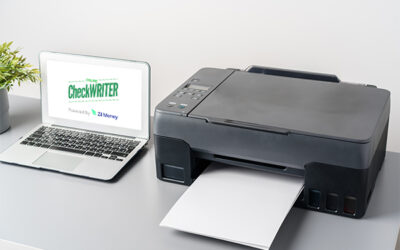A Routing Number Is Needed And Can Say Is A Must While Sending Or Receiving Money Banks And Other Financial Institutions As Well As Credit Unions
Online Check Writer
Key figures
1M+
online business accounts
88B+
transaction volume
16M+
checks processed
Click Here For Interactive Demo ⬇
What Is A Routing Number?
A routing number is a 9-digit number allotted to a bank, credit associations, or any financial institution. It helps to send and receive funds from other budgetary foundations—the routing number figures out where your record of account opened. The routing number is also called the ABA number or American Bankers Association number. Another name of the routing number is the routing transit number.
Instead of carefully going through checks to discover your bank’s name and conceivably confounding it with a bank of another name, routing numbers help bank staff and the machines that currently procedure checks to know precisely where cash should go. Using that method, checks proposed for Bank of America and American Bank never accidentally go to the wrong spot. It is one significant advantage of routing numbers. It is a fact that a bank will have several routing numbers, and it is contingent upon things like the area where the account opened or for any other critical mission of routing number utilized. However, it is to understand that no two banks will ever have the equivalent routing number.
What Are The Usages Of The Routing Number?
To be noted, the routing number can use for several tasks daily.
- Depositing directly
- Bill payments in an automatic manner
- Processing of checks
- Wire transfers
How Can We Identify The Routing Number On A Check?
The process is straightforward. The routing number inscribed on a check is a part of MICR, otherwise known as Magnetic Ink Character Recognition and the account number.
Is The Bank Routing Number To The Kept Secret?
According to John Smith, the famous economist, and product development head at online check writer, a Routine number should not be kept as secret as your account number. Instead, it is to be known to the customers and should be accessible at any point in time. It seems that almost all the responsible banks display routing numbers on websites themselves as it is a much-needed factor while writing a check or receiving a check.
One thing that should keep in mind is not to display or reveal account numbers and routing numbers as it may become an easy path to access another customer’s account. However, it will be highly appreciated if the routing number of a particular bank is made available on the bank’s website. Another aspect that should be candid is regarding the correct routing number, or else everything related to check submission and en-cashing may go wrong.
History Of A Routing Number
History of routing numbers turns back to around a century back, to be specific in the year 1910—it creates by the American Banking Association (ABA). This procedure’s main aim was to transform the check processing exercise more smoothly, rapidly, and error-free. To remember that computers did not invent at that time. The process of developing the routing number was to recognize the bank, which is paying uniquely.
It can put in other words that it was the bank’s responsibility who wants to honor the checks. For this entire process to be foolproof and secure, the development of an identification number was the only idea, and hence routing numbers came into existence. The routing number helped a person take a check to ensure that they would obtain the funds the check guaranteed from the payer’s bank.
Then, after introducing the Federal Reserve, which carried out a significant role in the payment processing methods, things got added to the same. The “Federal Reserve routing symbol” is known in the current financial scenario because a Federal Reserve number got attached to the routing number. This aids in understanding the type of financial institution and the Federal Reserve district where the account was open.
Routing number give check processing new dimensions
The numbers would proceed to be utilized in electronic check-trading systems beginning in for spendable currency in the 1960s, which extraordinarily accelerated check organizing. The section of the Check 21 Act, and the capacity of banks to make electronic duplicates of checks for transportation, instead of sending paper duplicates, have made handling practically immediate and easy to operate. With the help of OnlineCheckWriter.com – Powered by Zil Money you can print checks easily.
When a customer writes a check, there is a possibility that the particular cash has already been debit from the bank, or we can say that it is distantly confirmed. The movement of these checks made it to the banks and the customers, and they realized that the checks are moving at immense speed. You can see your full record number and routing number when you sign in to Online Banking systems. You’ll discover a connection in the “I’d like to” list on your checking account transactions page. There are two numbers you’ll have to give. There will be a nine-digit number digit code, which is also known as a routing number. It is the primary set of numbers printed on the bottom side of every check that is too on the left side.
Your account number (for the most will possess 10-12 digits) is precise to your account. It’s the second arrangement of numbers imprinted on your check’s base, just to one side of the bank routing number. You can likewise discover your account number on your month-to-month statement sent to you by banks. In short, the routing number helps a customer and the bank identify a particular detail of the check, which includes the bank, from where the account number was open, etc.










